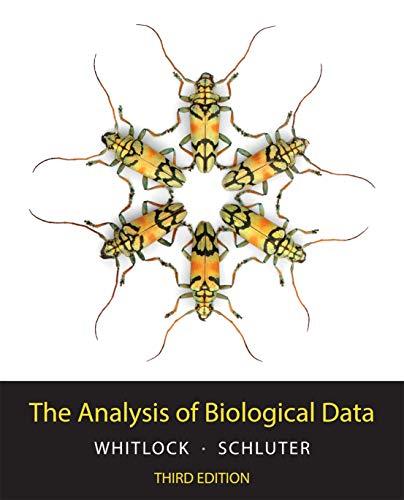In a study of heart rate in ocean-diving birds, researchers harnessed 10 randomly sampled, wild-caught cormorants to
Question:
In a study of heart rate in ocean-diving birds, researchers harnessed 10 randomly sampled, wild-caught cormorants to a laboratory contraption that monitored vital signs. Each cormorant was subjected to six artificial “dives” over the following week (one dive per day). A dive consisted of rapidly immersing the head of the bird in water by tipping the harness. In this way, a sample of 60 measurements of heart rate in diving birds was obtained. Do these 60 measurements represent a random sample? Why or why not?
Fantastic news! We've Found the answer you've been seeking!
Step by Step Answer:
Related Book For 

The Analysis Of Biological Data
ISBN: 9781319226237
3rd Edition
Authors: Michael C. Whitlock, Dolph Schluter
Question Posted:





